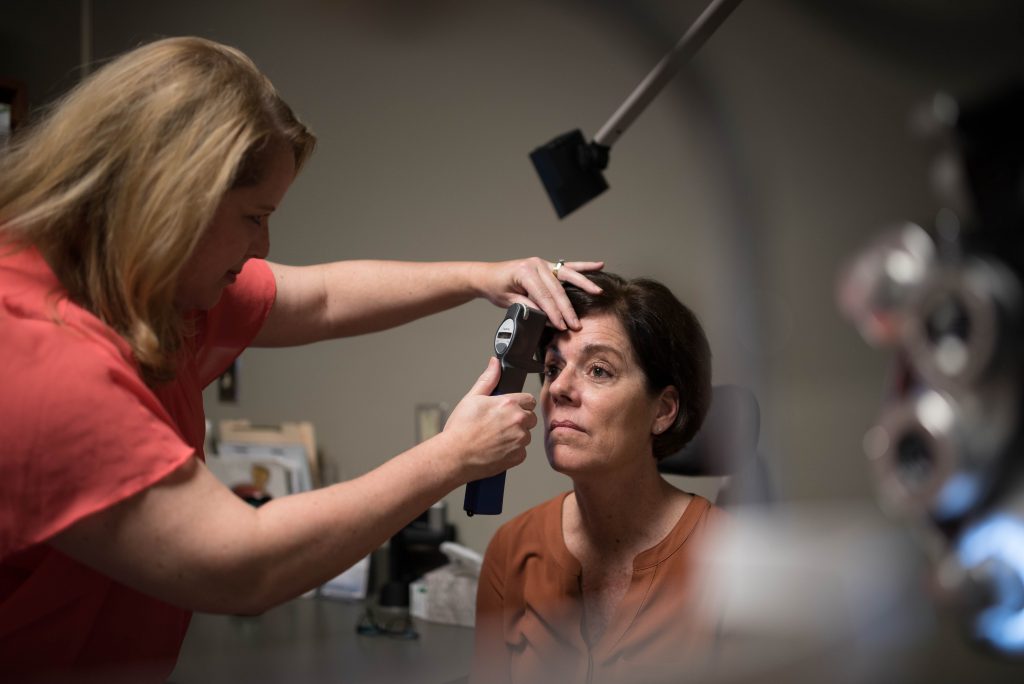Diabetic Examination
Help For Diabetic Patients
Diabetes is a disease that interferes with the body’s ability to use and store sugar. If not properly controlled diabetes can weaken the blood vessels not only in the eyes but in the entire body. Diabetic Retinopathy is the term used when diabetes has affected the vision and/or ocular structures.
The early stages of Diabetic Retinopathy may cause blurred vision, or they may produce no visual symptoms at all. As the disease progresses, you may notice a cloudiness of vision, double vision or blind spots. If left untreated, Diabetic Retinopathy can cause blindness, which is why it is important to have your eyes examined regularly by your doctor.
To detect Diabetic Retinopathy, your optometrist can look inside your eyes with an instrument called an ophthalmoscope that lights and magnifies the blood vessels in your eyes. If you have Diabetic Retinopathy, laser and other surgical treatments can be used to reduce its progression and decrease the risk of vision loss. Early treatment is important because once damage has occurred, the effects are usually permanent.
The early stages of Diabetic Retinopathy may cause blurred vision, or they may produce no visual symptoms at all. As the disease progresses, you may notice a cloudiness of vision, double vision or blind spots. If left untreated, Diabetic Retinopathy can cause blindness, which is why it is important to have your eyes examined regularly by your doctor.
To detect Diabetic Retinopathy, your optometrist can look inside your eyes with an instrument called an ophthalmoscope that lights and magnifies the blood vessels in your eyes. If you have Diabetic Retinopathy, laser and other surgical treatments can be used to reduce its progression and decrease the risk of vision loss. Early treatment is important because once damage has occurred, the effects are usually permanent.

